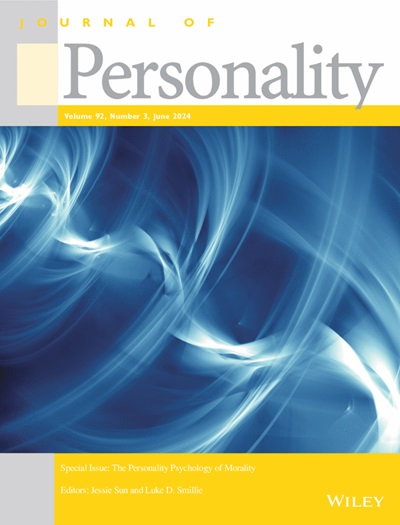在退休前的最后几年里,生活满意度的预测因素会发生变化吗?工作满意度与休闲满意度的个案研究
IF 2.7
1区 心理学
Q1 Psychology
引用次数: 0
摘要
生活满意度的预测因素在不同年龄的人之间有所不同,但对特定生活阶段的作用知之甚少。我们关注的是退休前最后几年的工作,人们通常认为,在这段时间里,员工对工作场所的依恋程度会降低,他们会把注意力放在生活的其他方面,比如休闲活动。我们的目的是测试领域满意度(工作和休闲)和整体生活满意度之间的联系在退休前的几年是否会发生变化。方法:我们对来自德国社会经济小组研究(n = 2520)的纵向数据进行了潜在增长曲线分析,应用时间到退休的度量,以调查(1)工作和总体生活满意度之间的个人内部关联以及(2)休闲和总体生活满意度之间的关联在退休前10年是否发生了变化。结果我们发现,工作满意度与生活满意度在人与人之间和内部水平上呈正相关,但随着员工接近退休,内部联系减弱。在退休前,休闲和生活满意度之间的正相关关系并没有显著变化。结论:我们将研究结果解释为潜在的退休前工作脱离的证据,要么支持退休后的调整,要么保护自己免受负面工作经历的影响,这与自我调节的寿命理论一致。本文章由计算机程序翻译,如有差异,请以英文原文为准。
Do Predictors of Life Satisfaction Change in the Last Years Leading Up to Retirement? The Case of Job Satisfaction and Leisure Satisfaction
BackgroundPredictors of life satisfaction vary between people of different ages, but little is known about the role of specific life phases. We focused on the last years of work before retirement when it is often assumed that workers become less attached to their workplace and focus on other areas of life instead, such as leisure activity. Our aim was to test if the associations between domain satisfaction (job and leisure) and overall life satisfaction change in the years before retirement.MethodsWe applied a time‐to‐retirement metric in a latent growth curve analysis to longitudinal data from the German Socioeconomic Panel Study (n = 2520) to investigate whether the within‐person associations between (1) job and overall life satisfaction and (2) leisure and overall life satisfaction change in the 10 years preceding retirement.ResultsWe found that job satisfaction was positively associated with life satisfaction at the between‐and within‐person level, but the within‐person association weakened as workers approached retirement. The positive within‐person association between leisure and life satisfaction did not change significantly on the lead up to retirement.ConclusionsWe interpret the results as evidence for a potential preretirement work disengagement, either to support postretirement adjustment or to protect from negative work experiences, in line with lifespan theories on self‐regulation.
求助全文
通过发布文献求助,成功后即可免费获取论文全文。
去求助
来源期刊

Journal of Personality
PSYCHOLOGY, SOCIAL-
CiteScore
9.60
自引率
6.00%
发文量
100
期刊介绍:
Journal of Personality publishes scientific investigations in the field of personality. It focuses particularly on personality and behavior dynamics, personality development, and individual differences in the cognitive, affective, and interpersonal domains. The journal reflects and stimulates interest in the growth of new theoretical and methodological approaches in personality psychology.
 求助内容:
求助内容: 应助结果提醒方式:
应助结果提醒方式:


